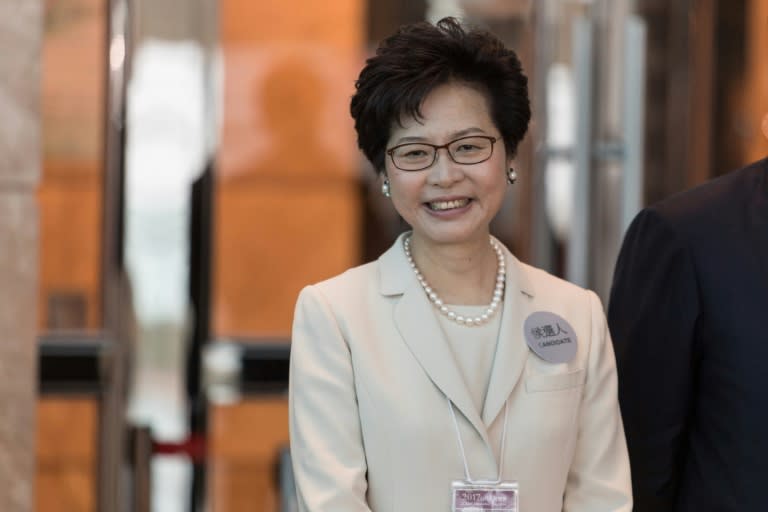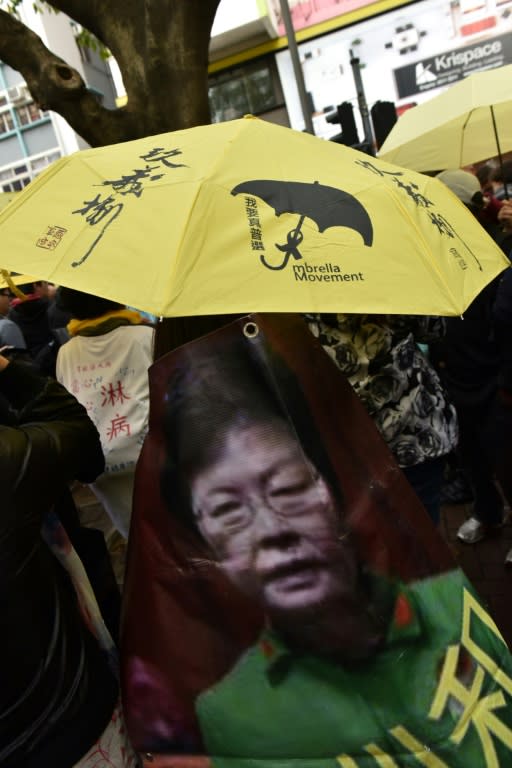Hong Kong's divisive new leader faces tough task
Hong Kong's new leader Carrie Lam, seen as tough and capable by supporters but hated by the pro-democracy camp, faces a difficult task in calming political tensions in the divided city. Voted in as chief executive Sunday by a committee weighted towards Beijing, critics say she will only further polarise a society riven by protests two years ago that centred on fears of China's growing influence. Lam, who will be the first woman to run Hong Kong, rose through the ranks as a career civil servant before taking public office. She served as deputy to Hong Kong's outgoing leader Leung Chun-ying and is tainted by her association with an unpopular figure who was criticised for doing Beijing's bidding while in office. Lam is nicknamed "lai-ma" or "wet-nurse" by opponents in a jibe over what they say was fawning loyalty towards her former boss. Her negative image among activists was sealed when she promoted a Beijing-backed reform package rejected as "fake democracy" by opponents. The plan triggered mass street protests in 2014 that paralysed the city for more than two months but failed to win concessions from Beijing on fully free leadership elections. Lam has made no commitment to revisit the political reform debate, instead trying to connect with the public on livelihood issues. The 59-year-old cast herself as a force for change on the campaign trail, focusing on issues such as poverty and housing which have also fuelled unrest. Although she was well behind main rival John Tsang in most opinion polls before the vote, she had strong support among older residents. Ex-finance minister Tsang, seen as a more moderate establishment figure, garnered backing from young people. Lam was widely perceived as Beijing's favoured candidate throughout the race and was viewed as the most likely winner. Her resignation from her position as deputy leader in January, a move that signalled her candidacy, was quickly endorsed by Beijing. In contrast, Tsang's resignation took more than a month to be approved by Chinese authorities. Lam has promised to try to build consensus and "restore faith and hope" in Hong Kong. But she has also said she would "strengthen the relationship between Hong Kong and China". "Hong Kong, our home, is suffering from quite a serious divisiveness and has accumulated a lot of frustrations. My priority will be to heal the divide," she said in a victory speech. Lam has also emphasised there is no room for independence for the city, responding to a rise in calls for a direct split from China by some young activists -- a sentiment viewed as unthinkable just a few years ago. She said she was "deeply honoured" to become the first female chief executive, adding gender equality was necessary for stable development. Lam's bid to be seen as a woman of the people hit stumbling blocks as she sought the leadership. While using the city's underground rail network as part of campaigning, she appeared unfamiliar with how to use the ubiquitous "Octopus" travel card to get through barriers. She was also mocked for a lack of common sense after an anecdote related to reporters -- about a late-night hunt for toilet paper -- revealed she didn't know where to buy essentials in a city packed with convenience stores. However in an election decided by a committee heavily weighted towards Beijing and branded unrepresentative by many campaigners, she eventually won by 777 votes, against Tsang's 365, and with former judge Woo Kwok-hing gaining 21.

 Yahoo Finance
Yahoo Finance 

